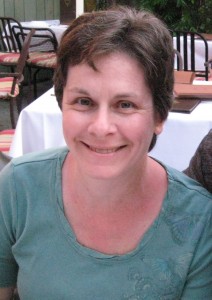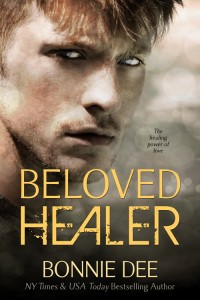In case you’ve missed it, there’s a new show on FYI called Married at First Sight. It’s reality TV, and it is heir to all the ills of that genre, and it’s probably crushing all our souls, yes, yes. But. As a writer, as somebody who’s interested in narratives, I find this show fascinating and really do have to recommend it for your next binge-watch.
The setup is: arranged marriages. At the start of the season, a team of experts–including a psychologist, a sociologist (the show calls itself a “sociological experiment”…more on that in a sec), a sexologist (Logan Levkoff!), and a spiritual advisor–sift through profiles of applicants and apply various rubrics to match up three couples. And then…the couples get married. They haven’t met prior to the wedding, and they have to spend a month together before deciding whether to stay married. So basically, a modern spin on the arranged marriage trope. And then the audience gets to watch the drama unfold, because of course there is a great deal of drama. If there weren’t, the show would create some for us, which is the beauty and the curse of reality television.
I do have a quibble with the attempt to characterize this as any type of valid “experiment.” For one thing…we’re talking about three couples. That’s a few anecdotes, not data. And there are too many unquantifiables here, things that simply can’t be controlled for, when you’re talking about people and self-awareness and emotions and whatnot. The sampling isn’t remotely random (for one thing, and it’s a very big thing…everybody involved is willing to be filmed and have their life aired on TV. Regardless of their motivation for that, it’s a huge factor in the types of personalities that’ll end up on the show). The criteria for matching up the couples aren’t all objective. This isn’t science. This isn’t even soft science. It’s entertainment, which is fine. It’s even thought-provoking entertainment, that has the potential to lead to some interesting discussions about the way we select mates, the conflict between our expectations and reality, and how those things impact on the long-term success of relationships. I do wish the show just acknowledged that, rather than trying to lend it some veneer of faux scientific credibility.
That said, I got the impression from the first episode that the matchup process did involve a lot of algorithms of the type that online dating services use…but on steroids. I’d be interested to see if, at the end of the season, they break down any of the specific factors for the audience in terms of which things seemed to be good predictors of compatibility or not. Dating sites actually do have an advantage in terms of statistics, because of the sheer volume of participants, and I think it’d be interesting to see them discuss a bit more what they did on the show that differed from dating algorithms and whether or not it seemed to work.
But whether it’s science or not, the show is pretty fascinating, and I think part of the reason it’s so fascinating is that this arrangement is a perfect pressure-cooker to provide tons of mini-dramas in a short time. It’s basically like a little narrative factory. When you’re first getting to know a romantic partner, there are all these moments of mystery, then potential conflicts, then possibly resolutions. The person drops a casual reference into conversation, you aren’t sure what it means, you sound them out on it and find out more to make sure it isn’t some deal-breaker of compatibility, you engage in that mental calculus (does this person’s physical appeal outweigh the possible implications of their being a libertarian?) then move forward based on the result (okay, sexy libertarian, you can stay…for now). This is a familiar dynamic, but MaFS raises the stakes dramatically by isolating this period in the relationship, compressing the time frame and adding the joint pressures of marriage and the awareness of being filmed all the time. Really, there’s no way that could fail to generate drama. And there are three couples. So each episode offers us three perfect, miniature examples of the classic conflict/resolution cycle, as well as bonus cliffhangers! Good, clean, narrative fun.
I confess part of the draw (a big part) is the schadenfreude. But it’s also that good old category-romance-style appeal. Because despite the modern trappings, the technology, the medium…it’s an ancient story, this one of matchmaking that sometimes succeeds. It’s why we’re still finding ways to fabricate arranged marriage circumstances even in contemporary romances. It’s one of the reasons some people read historicals. Heck, it’s one of the reasons Fiddler on the Roof is such an enduringly popular musical. We all love a fated-love story, we all want to believe that any or all of these couples will work out, will end up with the Best Story Ever about how they met. We want them to succeed…or perhaps to fail spectacularly. On camera, for our amusement.
And possibly, we want them to succeed because we want to think that a team of experts might have finally worked out the secret formula that will instantly hook us up with the perfect mate, and all we’d need to do is fill out a questionnaire in order to find true love. Matchmaker, matchmaker, make me a match!
By the way, I’m team Jason/Cortney, have conflicting thoughts about Jamie/Doug (in part because I doubt her sincerity), and feel that Vaughn and Monet should probably go back to living in different states. And I think part of the reason Jason and Cortney are doing as well as they seem to be doing is that they are younger and have fewer preconceptions/expectations to get in their way as they go through the process of getting to know one another. Which…surprised me, because I started out thinking the older participants would probably do better at least maintaining the appearance of getting along/working things out.
Anybody else watching this? Thoughts? Team?























